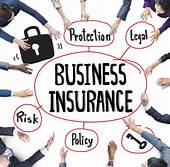

What Exactly Is Business Insurance?
Business insurance protects companies from losses that may arise during the usual course of business. There are many different forms of company insurance, including cover for property damage, legal liability, and employee-related hazards.
Companies assess their insurance requirements based on prospective hazards, which might vary depending on the sort of environment in which they operate.
Business interruption insurance (sometimes known as business income insurance)
is a form of insurance that covers a company’s loss of income following a calamity. The revenue loss covered may be the result of a disaster-related closure of the company facility or the rebuilding phase following a disaster.
It varies from property insurance in that property insurance only covers physical damage to the business, but the additional coverage provided by the business interruption policy covers lost revenues. This additional policy provision is applicable to all types of enterprises since it is intended to put a firm in the same financial situation as if no loss had happened. In certain countries, this sort of coverage can be added to the firm’s property insurance policy or comprehensive package policy, such as a business owner’s policy (BOP), or as part of a standalone policy. Because business interruption is included in the primary insurance, it only pays out if the source of the loss is covered by the overarching policy or a designated event in the case of a standalone policy.
Coverage
A business interruption insurance policy will normally cover the following:
Profits. Profits that would have been earned if earlier months’ financial statements had been used.
Costs that are fixed. The property is still incurring operating bills and additional charges (based on historical costs).
Temporary address. Some plans cover the additional costs of relocating to and operating from a temporary site.
Costs of commission and training The expense of giving training to the operators of the machinery replaced by the insurer following the insured occurrences are largely covered by the Business Interruption (BI) insurance.
Extra charges. Reimbursement for reasonable expenses (other than fixed costs) incurred by the firm while the property is being restored.
Ingress and egress of civil authorities. The government-ordered shutdown of a company location resulted in a direct loss of revenue.
For example, forced business closures due to government-issued curfews or street closures tied to a covered event are examples. This coverage is in effect until the conclusion of the business interruption period specified in the insurance policy. Most insurance plans define this term as beginning on the date of the covered risk and ending when the damaged property is physically restored and returned to operations in the same condition as before the disaster.
Furthermore, businesses can obtain contingent business interruption coverage, which pays out when a company is unable to function due to an event (such as a natural catastrophe) that destroys the business premises of one of its suppliers or customers, preventing it from doing normal business.
Understanding Commercial Insurance

Small company owners, in particular, must carefully analyze and evaluate their business insurance needs since they may face more personal financial exposure in the case of a loss. If a business owner does not believe he or she is capable of assessing business risk and the need for coverage, he or she should consult with a reputable, knowledgeable, and licensed insurance broker. You may get a list of licensed agents in your state by contacting your state’s insurance agency or the National Association of Insurance Commissioners.
These coverages, often known as commercial lines insurance, include property and casualty insurance products for businesses. Lines of commerce Insurance keeps the economy functioning smoothly by shielding firms from possible losses that they might not afford, to cover on their own, allowing enterprises to continue when it would otherwise be too dangerous.
Personal lines insurance can be contrasted with commercial plans.
Business Insurance Types
There are several forms of business insurance that small business owners should think about, including the following:
Insurance for Professional Liability
Professional liability insurance protects against allegations of carelessness resulting from errors or failure to perform. There is no such thing as one-size-fits-all professional liability insurance. Each industry has its own set of issues that must be handled.
Insurance for Real Estate
In the case of a fire, storm, or theft, property insurance protects equipment, signs, inventory, and furnishings. It does not, however, cover mass-destructive disasters such as floods and earthquakes. If your location is in danger of these problems, you will require a special plan.
Another exception is high-value and expensive personal property, which is normally covered by adding a “rider” to the policy. If a claim is filed, the property insurance policy will either compensate the policyholder for the actual cost of the damage or the replacement cost to repair the problem.
Home-Based Enterprises
Homeowner’s policies do not cover home-based enterprises in the same way that commercial property insurance does. Inquire about extra coverage for equipment and inventory if you run a home-based business.
Insurance for Product Liability
Product liability insurance is critical if your company makes and sells items. Any company can be named in a lawsuit as a result of damage caused by its products. In such circumstances, product liability insurance protects a company.
Vehicle Coverage
Vehicles used for commercial purposes should be adequately insured. Businesses should protect against third-party injury at the absolute least, but comprehensive automobile insurance will also cover the vehicle in the event of an accident. If workers use their personal vehicles for business purposes, their personal insurance will protect them in the case of an accident. One important exemption is if a person, including delivery staff, is providing products or services for a charge.
Insurance for Business Interruption
Business interruption (or continuation) plans are a form of insurance that is particularly useful for enterprises that require a physical location to do business, such as retail outlets or manufacturing plants. Business interruption insurance covers a company for lost income caused by circumstances that create a stoppage in operations.






